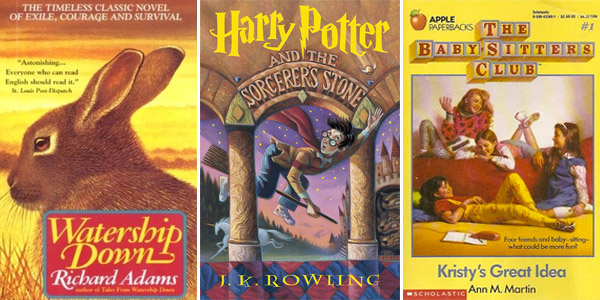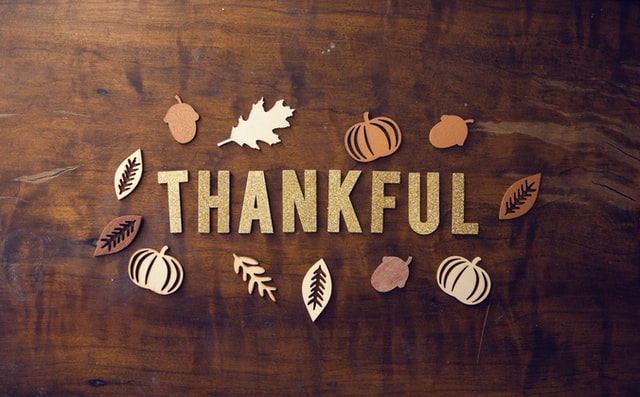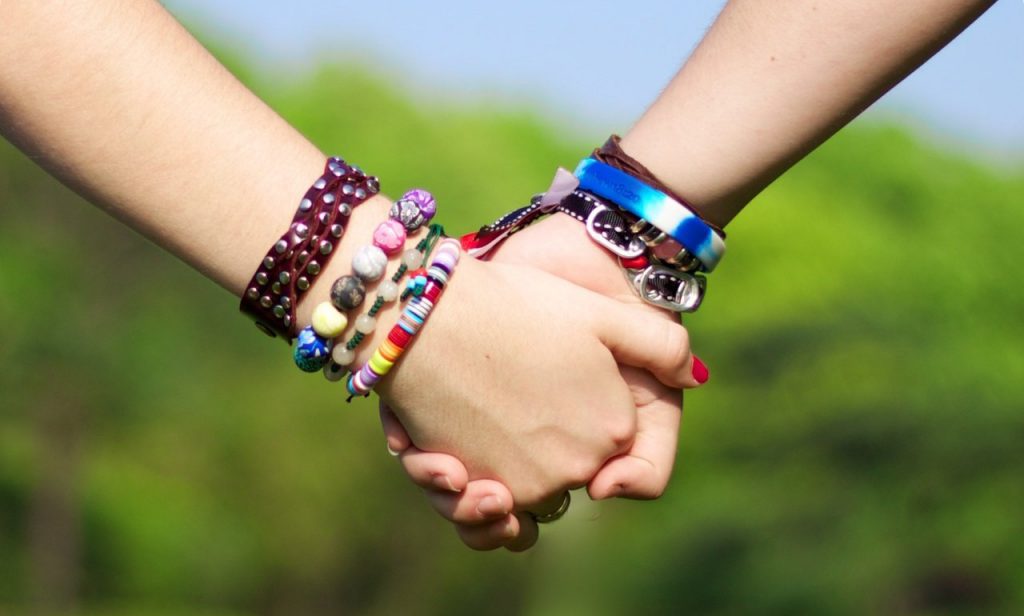The Book I’m Thankful For: From Watership Down to Murder on the Orient Express
The right book says the thing you needed to hear, the thing you didn’t even know you needed to hear, but you did need it and when this book said it, it was like bell sounding. Or not. Because sometimes the right book is just some piece of fluff that you picked up in an airport and it doesn’t say anything at all, but reminds you of something, maybe who you were when you read it. I’m grateful for a lot of books (two kids on, What to Expect When You’re Expecting springs to mind), but for some more than others: the right books, the ones that found me at the right time and carried me through, held me up, kept me interested.
I remember sitting in the bath, five years old, and listening to my mother, perched on the closed toilet, read Trudy Phillips, New Girl. It was a book from the 1950s, all bobby socks and Sadie Hawkins’ dances and a girl called “Spooky” and scrubbed-up optimism. I have no idea where my mother got it – she doesn’t remember, either – but I loved it. (I’ve since found and bought a copy on eBay; I can’t say it’s held up.) My childhood self is also thankful for Watership Down, which ferried me through a two-week bout with scarlet fever, for anything that Tamora Pierce ever wrote, for the Stephen King novels my parents read and left around the house for me to read and not understand, and, my God yes, The Babysitters’ Club series. I binged on those like I binged on candy at Halloween, except without the guilt or the nausea.
These were the years when reading books was like falling in love, a breathless obsessive sort of devouring that kept me up all night. The books I’m thankful for from this time are the ones that I couldn’t put down, that I’d prop up at next to my bowl of soup at dinner and read between slurps. Books that, even after I had a car and places to drive it to, I’d stay home on a Saturday night to read. There was Wally Lamb’s She’s Come Undone, which was at once affecting and completely over my head emotionally. I went through a big Gabriel Garcia Marquez phase, and passages from One Hundred Years of Solitude remain with me now. I read Margaret Mitchell’s Gone With the Wind halfway through my semester abroad in India during college and whoa, how I needed that book. I read it selfishly, cocooning myself in the blind gentility of Mitchell’s bizarro Civil War South, trying not to see the real desperate poverty around me. I clung to it like a life raft.

In my early twenties, I discovered books like Vendela Vida’s Girls on the Verge, non-fiction, well-reported worlds that gripped me as urgently as any fictional world did. Those were the books that made me think about what I really wanted to be when I grew up and began steering me gently towards journalism, research, and realism. At the same time, I lost myself in books like Audrey Niffenegger’s enchanting and sad The Time Traveler’s Wife, Jonathan Safran Foer’s mysterious, glorious Everything is Illuminated and heartbreaking Extremely Loud and Incredibly Close, Margaret Atwood’s delicate, intricate The Blind Assassin, Arthur Phillips’ shifty, tricky The Egyptologist, brilliant Prague. When I finally read The Lord of the Rings trilogy, I think I actually lost a week of my life hidden behind my massive, omnibus edition; I cried at the end, not just because I loved it so but also because it was over and what was I going to do now?
As I got older, my reading style became less voracious, less all-encompassing, less teenagery, and I missed that. I’m absurdly grateful to JK Rowling for writing a series of books that I couldn’t put down. Harry Potter reminded me what it’s like to fall in love with a book again.

But books still held me up when I needed them. At 28, I was denied entry to the UK and spent 11 hours in a detention center at Heathrow Airport awaiting the next flight that could take me back to America. I was and am grateful for the three books I had with me, two Agatha Christie novels, Death on the Nile and Murder on the Orient Express, and Jennifer Weiner’s In Her Shoes. I can barely remember their plots (murder, Nile, murder, train, shoes, sisters), but without them, I’d have drowned in my own tears and the innumerable tiny, plastic cups of tea the sympathetic Border agents kept slipping me. I owe a real debt of gratitude to Christie; her stories kept me afloat again in the two months I was living with my parents in South Florida (for more on the sun-soaked grimness of South Florida, please see the collected works of Ransom Riggs) and waiting for my UK visa. Maybe they reminded me of the sweeter, more quaintly murderous side of the nation that had just so unceremoniously ejected me.
But once I got to London, it was Sarah Lyall’s The Anglo Files that helped me make sense of my new home (and their whole thing about tea). If it didn’t answer questions like, “Why do some British people not rinse the suds off the dishes they’ve just washed?”, it at least helped me feel like I wasn’t going insane for having also noticed that habit. And her observations, her wit – as a professional writer now, what I find in books that I love, that I’m thankful for, is what I wish I could be. David Wroblewski’s The Story of Edgar Sawtelle had me stretched out on the couch for a full two days, chewing my lip and aching to write half so well. Emma Donoghue’s tense, terrifying Room was the same. All of Mary Roach’s books fill me with a kind of grateful envy – I’m glad she exists, I wish I wrote like her. Peggy Orenstein’s Cinderella Ate My Daughter both reminded me of the joy of that kind of exploratory journalism and made me glad I had two boys. Andrew Solomon’s Far From the Tree has made me rethink what it means to be a parent (not that, honestly, I ever stop thinking about what it means to be a parent now that I’ve got two kids, nor do I think I ever will).
In any case, I don’t read the same way I did when I was 6 or 16 or even 26, but the right books still find me. And I’m grateful for them.
Linda Rodriguez McRobbie
LINDA RODRIGEUZ MCROBBIE has written for the Boston Herald, Christian Science Monitor, CNN Money, US News & World Report, and Mental Floss. She lives in London with her husband, son, and cat.




